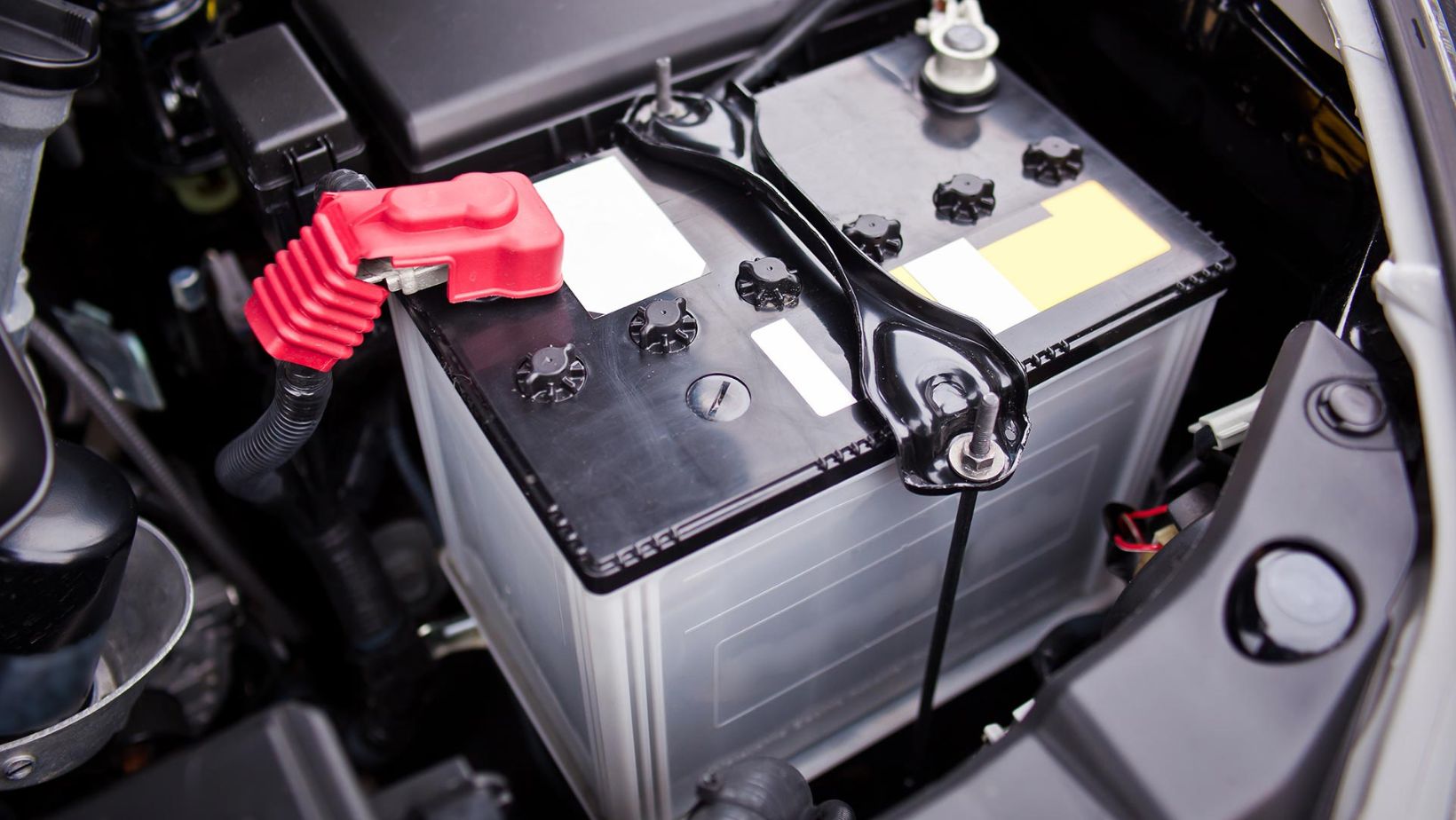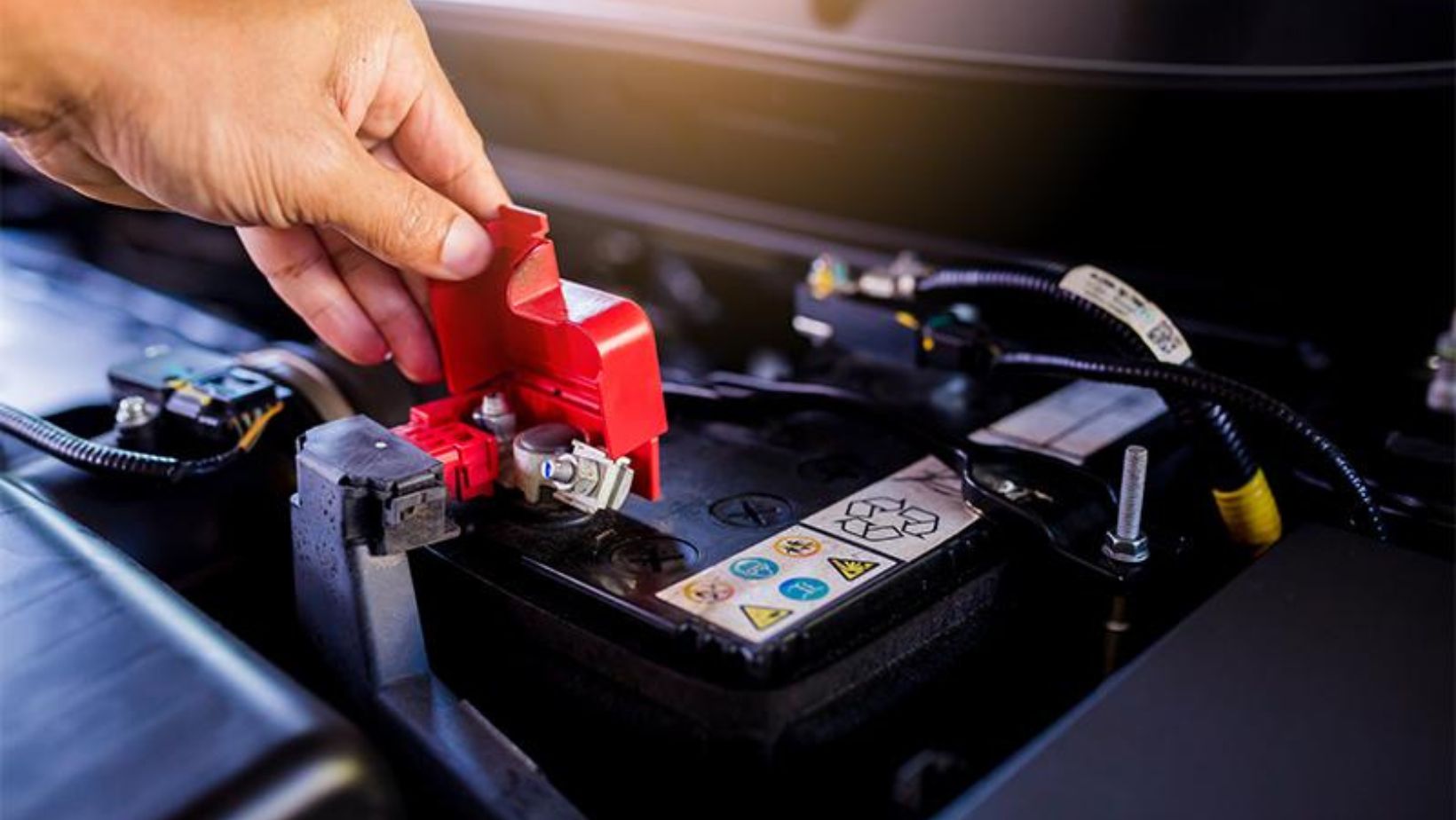
Car batteries are essential to every vehicle, providing the electrical power required to start the engine, operate various systems, and keep everything running smoothly. However, many car owners are unaware of the key factors and considerations regarding car batteries.
Understanding battery types, sizes, maintenance, and signs of a failing battery is crucial for vehicular performance and safety. This guide will provide you with the essential information you need to know about car batteries.
How Do Car Batteries Work?
In simple terms, car batteries work like a small power plant for your vehicle. They store and provide the electrical energy needed for various functions, especially starting the car.
Here’s a breakdown:
Chemical Reaction
Inside the battery are two types of materials, lead dioxide and sponge lead, submerged in an acidic solution known as an electrolyte. A chemical reaction begins when you turn the key to start your car.
Electricity Production
This reaction produces electrons, tiny particles with a negative charge. An electric current is made when these electrons move.
Powering the Starter
The electric current flows to the starter motor, responsible for turning the engine when you start the car. This initial burst of power requires a lot of energy, and the battery provides it.
Ignition and Electronics
Once the engine runs, the alternator provides power to the car’s electrical systems. The battery continues to play a role by stabilizing and storing excess energy the alternator produces for later use.
Factors to Look for When Choosing a Car Battery
Choosing the right car battery is crucial for the proper functioning of your vehicle. Here are some key factors to consider when making a decision:
Battery Group
The battery group refers to the standardized size and configuration of the battery that fits your vehicle. Different vehicles require batteries of specific sizes to ensure a proper fit.
It’s crucial to check your car’s manual or consult an expert to determine the correct battery group. Choosing the right group ensures the battery fits securely in the designated space and connects properly to your car’s electrical system.
Cold Cranking Amps (CCA)
Cold Cranking Amps (CCA) are vital when selecting a car battery, especially in colder climates. CCA measures the battery’s ability to start the engine in cold temperatures. The higher the CCA rating, the better the battery can deliver power to start the engine in freezing conditions.
Choosing a battery with a CCA rating that meets or exceeds your vehicle’s requirements is essential, ensuring reliable performance during cold weather.
Reserve Capacity
Reserve Capacity measures how long a battery can supply steady power if the vehicle’s alternator fails. It indicates the battery’s ability to power essential electrical components when the engine is off. A higher reserve capacity is beneficial, especially when the alternator is malfunctioning incorrectly.
Some Common Symptoms of a Bad Car Battery
Slow Engine Turnover
One common symptom of a bad car battery is a slow engine turnover when attempting to start your vehicle. If you notice that the engine cranks slowly or takes more time to start, it could indicate a weakened or failing battery. This occurs because the battery may not provide sufficient power to the starter motor, affecting the engine’s ability to turn over quickly.
Dim Headlights
If your vehicle’s headlights appear noticeably dimmer than usual, especially when the engine is idling or during start-up, it may indicate a lack of power from the battery. Dim headlights suggest that the battery struggles to provide adequate electrical energy to various components, affecting overall lighting performance.
Low Battery Fluid Level
Checking the battery fluid level is crucial for maintenance. A low battery fluid level can be an indicator of a failing battery. Remember, the fluid in a lead-acid battery is essential for the chemical reactions that produce electrical energy.
If the fluid level is consistently low, it may signify a malfunctioning battery, and addressing this issue promptly is essential for optimal battery performance.
Sulfurous Smell
A sulfurous or rotten egg smell near the battery is a less common but significant sign of potential issues. This odor is usually associated with a leak of hydrogen gas, a byproduct of the battery charging process. If you detect this smell, addressing the situation promptly and seeking professional assistance to prevent further damage or safety risks is crucial.
Opt for the Right Car Batteries Today
Investing in the right car battery enhances your vehicle’s performance and contributes to its longevity and overall driving experience. Whether you prioritize durability, advanced technology, or budget-friendly options, opting for the right car battery today ensures your journeys remain smooth and worry-free.
Shop Car Batteries today and enjoy the benefits of a well-maintained and efficiently powered car.












